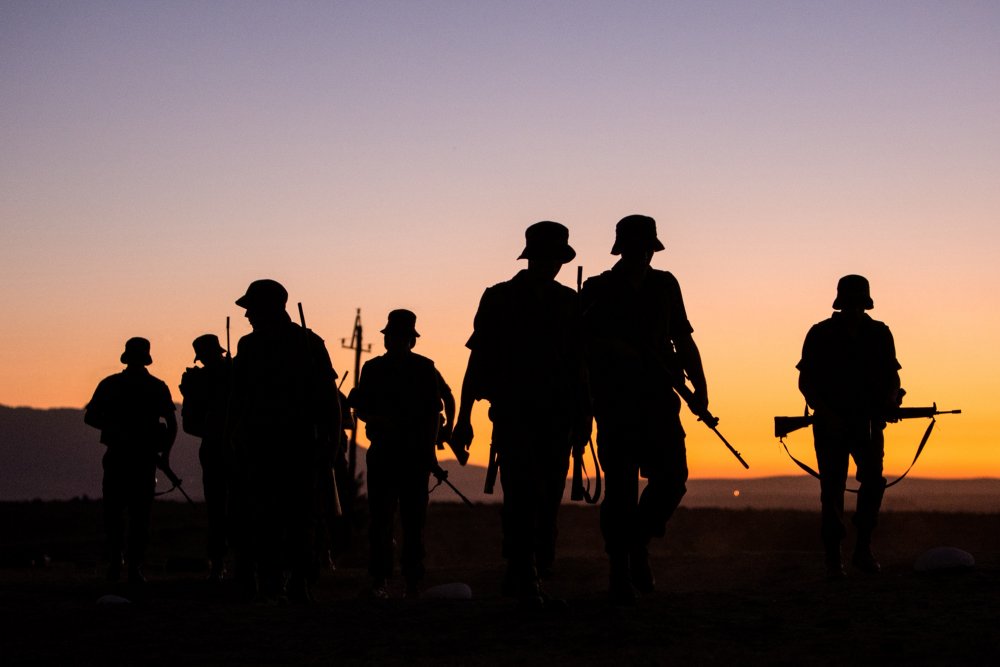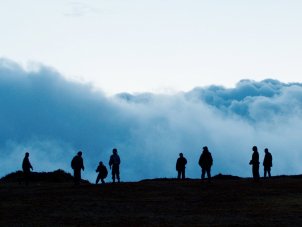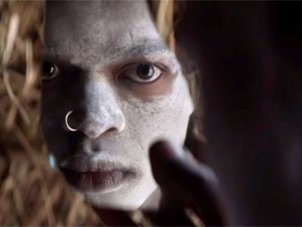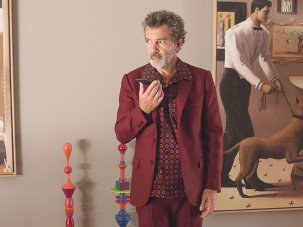“I’m planning my escape,” Nick (Kai Luke Brummer) jokes to his mother in the opening moments of Oliver Hermanus’s evocative Moffie. This sensitive 18-year-old is to leave home on military service the following day, and he’d be wise to follow through on his exit plan, because this is South Africa in 1981, and he’s about to enter the scorched hell of a sadistic year-long army training designed to mould young men into soldiers ready to fight communism and the ‘black danger’ heading to the border from Angola.
South Africa/United Kingdom 2019
99 mins
Director Oliver Hermanus
Cast
Nicholas Van der Swart Kai Luke Brummer
Young Nicholas Matt Ashwell
Michael Sachs Matthew Vey
Dylan Stassen Ryan de Villiers
► Trailer
Nick’s train ride to the barracks, where he passes compartments of teen boys drinking, fighting and throwing up (whether from fear, excitement or intoxication), sets the mood for the toxic all-male environment he’s about to enter. “It’s like the Springboks’ changing room out there,” says Sachs (Matthew Vey), the more mellow lad he sits down next too. “Smells like it too.”
It’s clear, though, that there’s more going on than macho horseplay when the train comes to stop at a rural station and a group of boys hang out the window to throw racist slurs as well as a bag of vomit at a black man waiting quietly on the platform. Something stinks all right.
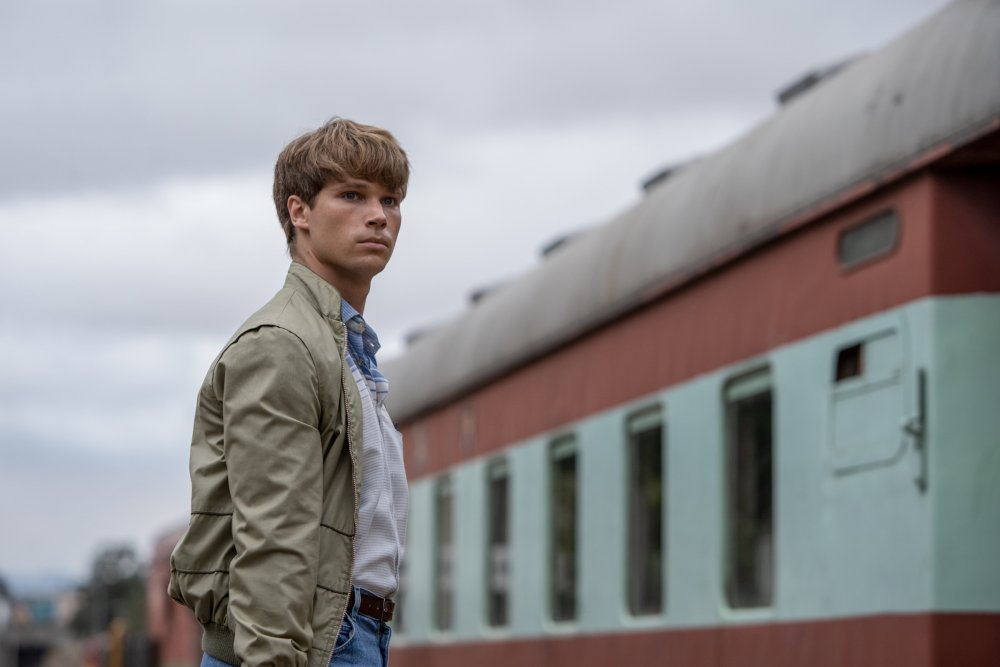
Kai Luke Brummer as Nicholas Van der Swart
Reluctance to take part in Apartheid-era racism isn’t the only thing that sets Nick apart from his peers. He is gay, or a ‘moffie’ – Afrikaans homophobic slang that’s translated to ‘faggot’ in the subtitles. His fearsome drill sergeant repeatedly screams the word when laying out the laws of the base. The penalty for being caught in a compromising position with another recruit ranges from vicious corporal punishment to a visit to the feared Ward 22, an anarchic facility that seems to have been modelled on lunatic asylums of Victorian Britain.
The chaos of this boot camp – which recalls the brutality of Full Metal Jacket crossed with the eroticism of Beau Travail – is punctuated by a sun-dappled flashback to a formative moment in young Nick’s sexual awakening. Shot in a virtuosic single take and set to Seals & Crofts’ dreamy Summer Breeze, the sequence reveals that Nick learned long ago to conceal his same-sex desires; he knows how to become invisible. A hetero porn magazine given to him by his father on the eve of his departure becomes a weapon for deflection and integration. With his rebellious pal Sachs he can slyly share his contempt for their surroundings with a sweet a capella duet of Rodriguez’s Sugar Man, an anthem embraced by white South African youths appalled by Apartheid.
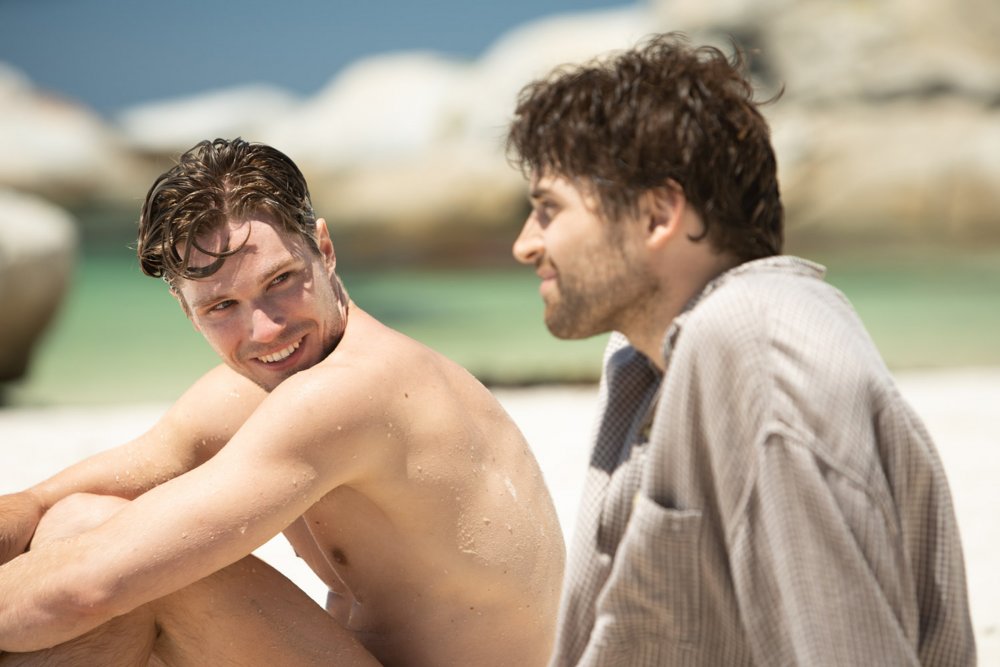
Brummer with Ryan de Villiers as Dylan Stassen
However, when training activities include swimming naked at the local lake, sweaty sessions of shirtless volleyball and survival training where the boys snuggle in dirt trenches for warmth, controlling one’s natural urges is easier said than done. It’s while on the latter exercise that Nick shares an intimate night with the strapping Dylan (Ryan de Villiers). This tryst awakens Nick’s repressed desires but also puts both men in danger.
Moffie unsettles from its opening seconds thanks to the heart-attack-inducing score from Braam du Toit, with atonal strings that seem to emanate from Nick’s anxious head. Jamie Ramsay’s richly textured, sun-bleached cinematography matches the musical intensity, favouring hand-held close-ups so intimate you can see the actors pores sweat. Classical tracks by Bach and Vivaldi at their most baroque add to the film’s feverish atmosphere.
With this gut-punch of a film and 2011’s Beauty, which explored the self-loathing psyche of a South African businessman dangerously obsessed with his daughter’s boyfriend, Hermanus has given us two thrillingly cinematic films digging deep into his nations’ deep-seated anger, repression and self-loathing. I hope this talented filmmaker has more to say on the subject.
-
Venice Film Festival 2019 – all our coverage

All our coverage of the 2019 Biennale di Venezia International Film Festival.
-
BFI London Film Festival 2019 – all our coverage

We’ve reviewed over 50 (and rising) of the films programmed in this October’s London Film Festival. Find them all here.
-
The Digital Edition and Archive quick link
Log in here to your digital edition and archive subscription, take a look at the packages on offer and buy a subscription.




